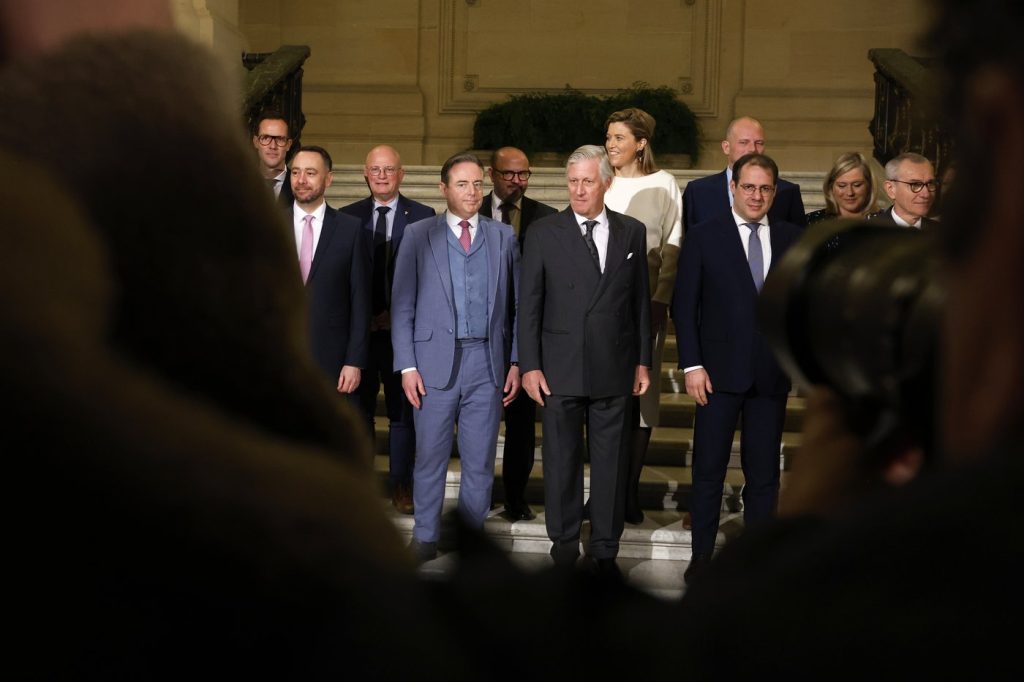BRUSSELS (AP) — Belgium has appointed a new prime minister, Bart De Wever, who has long championed the idea of giving increased autonomy to the northern region of Flanders, challenging the traditional notions of Belgian unity. De Wever took the oath of office early on Monday, February 3, 2025, in front of King Philippe, signifying a potential shift in the political landscape of the nation.
De Wever, a member of the Flemish nationalist party N-VA, stated, "I swear allegiance to the king," a notable sentiment given his past disdain for the monarchy, which he associates with the outdated concept of national unity. This marks a significant transformation in the political discourse, fostering hopes for a gradual shift towards a renewed equilibrium among the Dutch-speaking Flanders, the French-speaking Wallonia, and the multilingual Brussels.
The swearing-in ceremony, held at the Royal Palace, was conducted in both Dutch and French, reflecting the bilingual nature of Belgian politics. Out of the 15-member cabinet, several ministers chose to express their oaths in their native languages during the ceremony. Highlighting the complexity of Belgian governance, De Wever emphasized the importance of participating in the system to advocate for community interests, stating, "When you don’t take part, you are certainly left empty-handed." This perspective aligns with the ongoing issues surrounding language and governance in Belgium throughout its history.
De Wever succeeded Alexander De Croo, who had been in office as a caretaker since the elections in June 2024. The new prime minister's government program aims to address pressing societal concerns, including budget reform, social policy enhancement, strict immigration controls, and nuclear energy discussions. The N-VA committed to "cleaning up the budget," focusing on bolstering work incentives, and investing in safety measures.
One immediate subject of scrutiny has been the gender balance within the new cabinet. While De Croo achieved near parity between men and women in his administration, De Wever's cabinet includes only three women, with none among the four vice-premiers. Although De Wever expressed regret over this lack of representation, it was not a major focus during coalition negotiations.
De Wever’s coalition comprises an eclectic mix of five political parties, breaking a seven-month stalemate in governmental formation. The shift in power dynamics allowed De Wever to broker a deal following the significant electoral losses faced by the PS socialists in Wallonia. Consequently, the coalition that emerged includes the N-VA, the francophone MR liberals, the centrist CD&V, and the Engages party, securing a comfortable majority with a control of 81 out of 150 seats in the House of Representatives.
Despite the successful coalition's formation, the arduous nature of the discussions underscores the lingering challenges in reconciling fundamental differences between the involved parties. As Belgium navigates its political future under Bart De Wever’s leadership, one central theme remains: the ongoing struggle to balance the interests of its diverse regions, particularly amid rising economic power in Flanders juxtaposed against the declining industrial strength of Wallonia.










